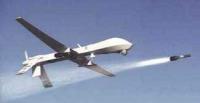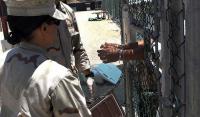-
In FBI versus Apple, government strengthened tech’s hand on privacy
The ongoing fight between Apple and the FBI over breaking into the iPhone maker’s encryption system to access a person’s data is becoming an increasingly challenging legal issue. This case is very specific, and in this narrow case, Apple and law enforcement agencies will likely find a compromise. However, this question is not going away anywhere. With the “Internet of things” touted as the next big revolution, more and more devices will capture our very personal data – including our conversations. This case could be a precedent-setting event that can reshape how our data are stored and managed in the future.
-
-
Suicide bomb detector moves close to commercialization with Sandia engineer’s help
On the chilling list of terrorist tactics, suicide bombing is at the top. Between 1981 and 2015, an estimated 5,000 such attacks occurred in more than 40 countries, killing about 50,000 people. The global rate grew from three a year in the 1980s to one a month in the 1990s to one a week from 2001 to 2003 to one a day from 2003 to 2015. R3 Technologies and a group of other small businesses are developing a way to prevent suicide attacks by detecting concealed bombs before they go off. R3 found a partner in Sandia sensor expert JR Russell who has helped bring the company’s Concealed Bomb Detector, or CBD-1000, close to commercialization over the past two years.
-
-
Refined interview technique can reveal terror plots
An interview technique for eliciting intelligence without asking questions has in a series of experiments proven to work very well. The idea dates back to the renowned Second World War interrogator Hanns Scharff, but has now, for the first time, been empirically validated. The technique can help intelligence agencies reveal plans of future terrorist acts.
-
-
French Special Forces join fight against ISIS in Libya
French Special Forces are among commando units operating on the ground in Libya against ISIS. A small French force has been operating out of Benghazi’s Benina airport, assisting forces of the internationally backed Libyan authorities in Tobruk. The Pentagon has said that in the absence of a unity government, U.S. Special Forces have been “partnering” with different militias for attacks on ISIS militants.
-
-
Wearing hijab is “passive terrorism”: USAF study
A study issued by the U.S. military has suggested that wearing the hijab by some Muslim women represents a form of “passive terrorism.” The study, originally issued by the USAF in 2011 and re-issued in summer 2015, includes a chapter which contains discussion of radicalization. In addition to the comment about hijabs, the chapter also claims that support for militant groups is driven by “sexual deprivation.”
-
-
Pro-ISIS hackers issue threats to Facebook, Twitter founders
Pro-ISIS hackers have released a video threatening the founders of Facebook and Twitter in retaliation for the two social media giants’ campaign to take down ISIS-related accounts. The threat was issued in a 25-minute video, uploaded on Tuesday to social networks by a group calling itself “Sons Caliphate Army” – which experts say is the latest “rebrand” of ISIS’s supporters online.
-
-
Partition of Syria could be “Plan B” if cease-fire, peace negotiations fail: Kerry
Secretary of State John Kerry said he would support a partition of Syria – what he called “Plan B” – if the U.S.-Russian sponsored ceasefire, scheduled to start in the next few days, fails to materialize. Partition would also be an option, Kerry said, if a genuine shift to a transitional government does not take place in the next few months. Kerry’s words were the first time a senior American official publicly discussed the option of partitioning Syria, although experts have noted that the partition of the country by creating an Assad-controlled Alawite enclave in north-west Syria is Russia’s true goal in the conflict.
-
-
U.S. to fly armed drone attacks from a base in Sicily against ISIS in Libya

Italy said it would allow armed U.S. drones to be based in an American base in Sicily so they would be within to launch attacks against ISIS militants in Libya and other northern Africa countries. The agreement was reached after years of negotiations, and against the backdrop of intensified ISIS activity in Libya and other African countries.
-
-
Obama to send last Gitmo relocation plan to Congress today

Moving Guantánamo detainees to the mainland United States has been one of President Barack Obama’s main goals – and a major bone of contention with Congress. The issue has now become more pressing as the United States and Cuba are in the process of normalizing their relationships, and the Cubans want the detainees out of Gitmo as well. Obama will be sending a plan to Congress today (Tuesday), urging lawmakers to agree to move the detainees to locations in the United States – but the plan does not name the sites in the United States to which locations the administration wants to send the remaining detainees.
-
-
Understanding Islamic State: where does it come from and what does it want?

Islamic State (IS) is an instance of a phenomenon that recurs in most religions, and certainly in all monotheistic religions. Every so often militant strains emerge, flourish temporarily, then vanish. They are then replaced by another militant strain whose own beginning is linked to a predecessor by nothing more profound than drawing from the same cultural pool as its predecessor. Whatever the future may hold, IS, like some apocalyptic Christian groups, has proved itself so tactically and strategically adept that it has obviously kicked any “end of days” can well down the road (roughly the same distance al-Qaeda kicked the re-establishment of the caliphate can). Further, much of the IS leadership consists of hard-headed former Iraqi Ba‘th military officers who, if they think about an apocalypse at all, probably treat it much as Hitler’s generals treated the purported musings of Nazi true believers — with a roll of their eyes. Foregrounding IS’s apocalyptic worldview enables us to disparage the group as irrational and even medieval — a dangerous thing to do. If the recent past has demonstrated one thing, it’s that IS thrives when its adversaries underestimate it.
-
-
Conflicting claims by Kurds, Turkish govt. over deadly Ankara bombing

The Kurdistan Freedom Hawks (TAK), a Kurdish militant group once linked to the outlawed Kurdistan Workers party (PKK), has claimed responsibility for the bombing in the Turkish capital of Ankara that killed twenty-eight people. The claim was made on the groups’ Web site. On Thursday, the Turkish government said the attack was carried out by the People’s Protection Units (YPG), a Syrian Kurdish militia affiliated with the PKK. YPG has been supported by the United States and has made considerable gains in fighting ISIS in northern Syria.
-
-
New sensor rivals dogs in detecting explosives

Dogs have been used for decades to sniff out explosives, but now a University of Rhode Island scientist and his team have come up with another way to detect bombs: sensors. The scientist has developed a sensor that can detect explosives commonly used by terrorists. One of these explosives is triacetone triperoxide, or TATP. Triacetone triperoxide has been used by terrorists worldwide, from the 2001 “shoe bomber” Richard Reid to the suicide bombers who attacked residents of Paris in November. The explosive is relatively easy to make with chemicals that can be bought at pharmacies and hardware stores, attracting little attention from authorities.
-
-
EUROPOL: 3,000-5,000 ISIS-trained jihadi fighters living in Europe
EUROPOL director Rob Wainwright warned ISIS is planning more attacks in Europe. Europol estimates that there are between 3,000 and 5,000 international fighters who returned to Europe from Syria. “The growing number of foreign fighters is presenting EU countries with completely new challenges,” Wainwright said.
-
-
ISIS use of children, youth increasing at an unprecedented rate
The Islamic State is mobilizing children and youth at an increasing and unprecedented rate. The authors of a new report from the Center for Combatting Terrorism present preliminary findings from a new database in which they recorded and analyzed child and youth “martyrs” eulogized by the Islamic State between January 2015 and January 2016. The data suggests that the number of child and youth militants far exceeds current estimates.
-
-
In 1981 Bernie Sanders wrote Margaret Thatcher in support of IRA prisoners
Senator Bernie Sanders (I-Vermont), a contender for the Democratic presidential nomination, wrote to Prime Minister Margaret Thatcher in 1981 to ask her to “‘stop the abuse, humiliation and degrading treatment” of Irish prisoners who were on hunger strike in a Northern Ireland jail. At the time Sanders was the mayor of Burlington, Vermont.
-
More headlines
The long view
What Does Netflix’s Drama “Adolescence” Tell Us About Incels and the Manosphere?
While Netflix’s psychological crime drama ‘Adolescence’ is a work of fiction, its themes offer insight into the very real and troubling rise of the incel and manosphere culture online.
